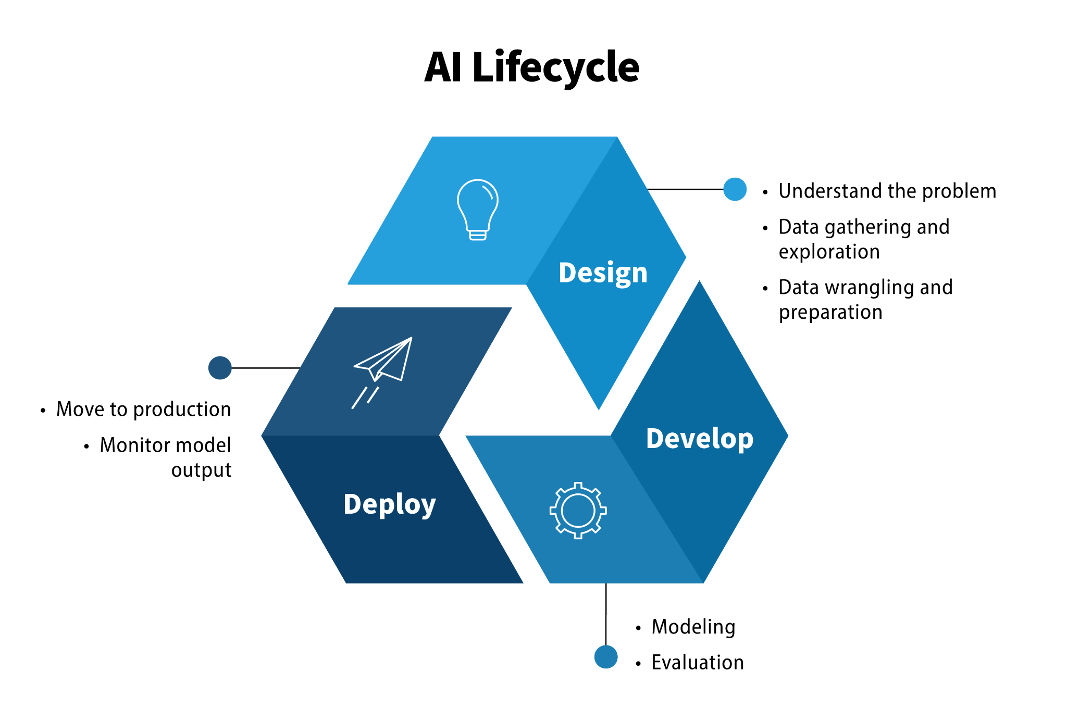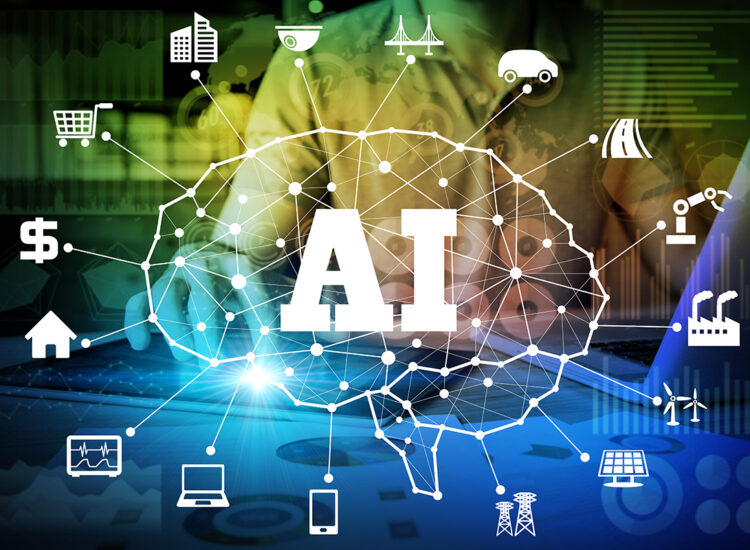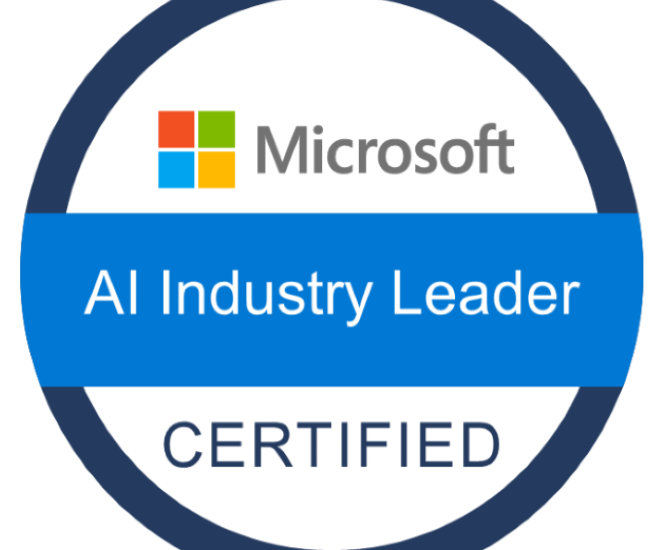The emergence of AI-powered chatbots, like ChatGPT, has ignited a firestorm of excitement and investment in AI software development companies, pushing the boundaries of what’s possible in technology. While these advancements hold immense potential for enhancing productivity and improving user experiences, concerns about data privacy, ethical implications, and potential job displacement remain. Understanding the nuances of these issues is essential for investors seeking to make informed decisions about AI software development companies.
Toc
Understanding the AI Software Development Landscape

The AI software development landscape is rapidly transforming, driven by several key factors. The AI software development market is expected to skyrocket, reaching an estimated $126 billion by 2025, fueled by a compound annual growth rate (CAGR) of approximately 38.1%. This growth is largely attributed to the increasing adoption of cloud computing, the rise of generative AI models, and the surging demand for AI-powered solutions across various sectors.
Key Technologies and Applications
AI software development encompasses a wide array of technologies, including natural language processing (NLP), computer vision, and predictive analytics. AI software development is not just a technological advancement; it’s a fundamental shift in how businesses operate. For example, in healthcare, AI-powered tools like IBM Watson for Oncology , launched in 2012, are assisting doctors in personalized cancer treatment plans. Google’s DeepMind is contributing to drug discovery with its AI platform, AlphaFold, which achieved a significant breakthrough in 2020 by predicting protein structures with remarkable accuracy. These examples demonstrate how AI is transforming industries by enhancing efficiency, accuracy, and innovation.
Impact on Various Industries
The impact of AI software development companies is particularly pronounced in sectors like healthcare, finance, and manufacturing. For instance, AI-driven diagnostic tools are helping healthcare professionals make more accurate diagnoses, while financial institutions are leveraging AI for risk management and fraud detection. While healthcare and finance are leading adopters of AI, its influence is extending to other sectors. In manufacturing, companies are using AI-powered predictive maintenance to minimize downtime and optimize production processes. Amazon’s robotics division is deploying robots in warehouses, automating tasks like picking and packing, increasing efficiency and reducing labor costs. As these technologies evolve, they present both challenges and opportunities for companies navigating this dynamic landscape.
Top AI Software Development Companie
Identifying the leading AI software development companies is crucial for investors looking to capitalize on this transformative technology. Below are some of the most notable players in the industry.
1- Microsoft (MSFT)
Microsoft is a dominant player in the AI software development arena. With a substantial investment of $10 billion in OpenAI, the company has integrated the popular ChatGPT chatbot into its Bing search engine and Edge browser. Microsoft Azure has emerged as a leading cloud platform for AI-powered services, driving growth and innovation. The company’s strategy focuses on leveraging AI to enhance productivity across its suite of products, making it a key player in the AI landscape.
2- NVIDIA (NVDA)
NVIDIA has established itself as a cornerstone of AI development, primarily through its powerful graphics processing units (GPUs). These GPUs are essential for training large language models and other AI systems, positioning NVIDIA as a critical player in the AI software development ecosystem. Recent acquisitions and strategic partnerships further bolster its influence, enabling NVIDIA to remain at the forefront of AI innovation.
3- Alphabet (GOOG)
As the parent company of Google, Alphabet has consistently pushed the boundaries of AI innovation. From its flagship search engine to various AI-powered products and services, Alphabet’s commitment to AI is evident. The company is also investing heavily in its cloud computing platform, enhancing its capacity to support AI research and development. Despite facing challenges with the rollout of its Bard chatbot, Alphabet’s overall impact on the AI industry remains significant.
4- Meta Platforms (META)
Formerly known as Facebook, Meta Platforms is leveraging AI to enhance its social media platforms and explore new dimensions in virtual and augmented reality. The company is actively integrating AI-powered chatbots into its messaging apps and focusing on AI-generated content moderation. Meta’s innovative approach positions it as a significant influencer in the future of social media through AI technologies.
5- Apple (AAPL)
Apple has quietly been integrating AI capabilities into its products and services, making significant strides in the AI software development sector. With the recent announcement of “Apple Intelligence,” an AI-powered assistant featuring ChatGPT-like functionalities, Apple is set to impact the market significantly. The company’s focus on user experience and seamless integration of AI technologies into its devices highlights its strategic approach to AI development.
Investing in AI Software Development Companies

Investing in AI software development companies requires a strategic approach. Here are several investment strategies to consider:
Direct Stock Investment
One straightforward way to invest in AI software development companies is through direct stock purchases. Companies like Microsoft, NVIDIA, Alphabet, Meta, and Apple are publicly traded, allowing investors to buy shares and potentially benefit from their growth.
AI-Focused ETFs and Mutual Funds
For those looking for diversification, investing in AI-focused exchange-traded funds (ETFs) or mutual funds can be an excellent option. These funds typically hold a basket of AI-related stocks, providing exposure to the broader AI market while mitigating the risks associated with investing in individual companies. Some popular AI ETFs include the Global X Robotics & Artificial Intelligence ETF (BOTZ) and the iShares Robotics and Artificial Intelligence Multisector ETF (IRBO).
Venture Capital Opportunities
Investing in early-stage AI startups through venture capital can yield significant returns, albeit with higher risk. These companies may face challenges in scaling operations and achieving profitability. Conducting thorough due diligence and collaborating with experienced venture capital firms can help investors navigate this space effectively. Some notable AI startups include UiPath, Suki.ai, and OpenAI.
- https://gopmik.xyz/seamless-ai-reviews-transforming-b2b-sales-prospecting-with-ai/
- https://gopmik.xyz/the-top-ai-tools-for-small-business-in-2024/
- https://gopmik.xyz/the-rise-of-ai-contract-review-revolutionizing-legal-efficiency/
- https://gopmik.xyz/the-ultimate-guide-to-the-best-ai-medical-scribes-boost-your-efficiency-and-patient-care/
- https://gopmik.xyz/the-transformative-power-of-ai-tools-for-ecommerce-marketing/
The Future of AI Software Development

The future of AI software development is bright, with the potential to transform various industries. Here are some areas where AI is expected to make a significant impact:
Healthcare
AI software development is revolutionizing healthcare with AI-powered diagnostic tools that enhance the accuracy and speed of diagnoses. Additionally, AI-driven drug discovery and clinical trial optimization are accelerating the development of new treatments, making healthcare more efficient and effective.
Finance
In the financial sector, AI software development is changing how companies manage risk, detect fraud, and make investment decisions. Companies like Palantir are utilizing AI-driven data analytics platforms to provide financial institutions with valuable insights, helping them gain a competitive edge in a complex market.
Transportation
AI is poised to transform transportation through the development of autonomous vehicles and smart city initiatives. By enhancing traffic management and optimizing logistics, AI technologies can improve efficiency and reduce environmental impact.
Education
The education sector is also benefiting from AI software development, with personalized learning experiences tailored to individual student needs. AI can analyze learning patterns and provide customized content, enhancing educational outcomes.
Sustainable Energy
AI-driven solutions are increasingly being used to improve energy efficiency and promote renewable energy sources. By optimizing energy consumption and predicting demand, AI can play a crucial role in creating a sustainable energy future.
Emerging Trends in AI
Several trends are shaping the future of AI software development, including:
- Generative AI and Large Language Models: Innovations in generative AI are leading to more sophisticated applications, expanding the capabilities of AI technologies.
- Explainable AI: As AI systems become more complex, the demand for transparency and explainability is growing, ensuring that AI decisions can be understood and trusted.
- Data Privacy and Security: With the increasing reliance on AI, concerns about data privacy and security are paramount. Companies are prioritizing these issues to maintain user trust and comply with regulations.
- Federated Learning : This technology enables AI models to be trained on decentralized data sets, addressing privacy concerns. Particularly relevant in healthcare, it allows sensitive patient data to be analyzed without compromising privacy. Google’s Federated Learning framework is being used by healthcare providers to develop AI models for disease prediction and drug discovery.
- AI-Powered Chipsets : Companies like Qualcomm are developing specialized chips optimized for AI applications, enabling AI capabilities to be integrated into devices like smartphones and wearable technology. These advancements are leading to the development of more sophisticated and personalized AI experiences.
Frequently Asked Questions

How Can Investors Get Started in AI?
For investors looking to dive into the AI sector, there are several steps to consider:
- Research and Education: Start by educating yourself about the AI landscape. Understand the basics of AI technologies, industry applications, and the leading companies in the sector. Subscribe to industry publications, attend webinars, and participate in online courses to build a foundational knowledge base.
- Identify Investment Vehicles: Decide whether you prefer direct stock investments, ETFs, mutual funds, or venture capital. Each investment type has its risk-return profile, and understanding your risk tolerance and investment goals is crucial.
- Stay Updated on Industry Trends: AI is a rapidly evolving field with continuous innovations. Keep an eye on emerging trends, technological advancements, and market shifts. This will help you make informed investment decisions and adjust your portfolio as needed.
- Consider Diversification: While AI is an exciting area with significant growth potential, it’s important to diversify your investment portfolio to mitigate risks. In addition to AI, explore opportunities in other sectors and asset classes.
- Consult with Financial Advisors: If you’re uncertain about where to start, consider consulting with a financial advisor experienced in technology investments. They can provide personalized guidance based on your financial situation and goals.
By taking these steps, investors can position themselves to capitalize on the growing opportunities within the AI sector while managing risk effectively.
What are the Risks Associated with AI Investments?
While investments in AI hold immense potential for growth, they also come with inherent risks that investors should consider:
- Market Volatility: AI companies, especially startups, can experience significant volatility in their stock prices. Rapid technological changes, regulatory impacts, and competitive dynamics can all contribute to fluctuations, impacting investor returns.
- Regulatory Challenges: As AI technologies evolve, regulatory landscapes are continuously changing. Compliance with data privacy laws, like GDPR, and industry-specific regulations can pose challenges for AI companies and may affect their market prospects.
- Ethical Considerations: Ethical concerns surrounding AI, such as bias in algorithms and the social implications of automation, can impact public perception and regulatory scrutiny. Companies that fail to address these issues may face reputational damage or legal implications.
- Technological Risks: AI relies heavily on data quality and infrastructure capabilities. Technical failures, data breaches, or inadequacies in data management can hinder AI effectiveness and lead to potential business setbacks.
- Intellectual Property Risks: The fast-paced nature of AI research and development increases the risk of intellectual property disputes, as companies strive to innovate and protect their technological advancements.
Investors should conduct thorough research and stay informed about these risks to make balanced investment decisions within the AI domain. Understanding the landscape and potential challenges will help investors navigate the complexities of AI investing and mitigate associated risks.
Conclusion
The AI software development landscape is ripe with opportunities for investors. By understanding the key players, trends, and potential risks, you can strategically position your portfolio to benefit from the extraordinary growth and innovation in this dynamic industry. The companies leading the charge in AI software development are set to shape the future of technology and drive remarkable advancements across various sectors.
While the potential of AI is undeniable, it’s crucial to acknowledge potential challenges. One significant concern is the potential for AI bias, where algorithms trained on biased data can perpetuate existing inequalities. For example, facial recognition systems have been shown to be less accurate for people of color, highlighting the need for responsible development and deployment of AI technologies.
Whether you choose to invest directly in top AI software development companies, explore AI-focused investment funds, or venture into the world of AI startups, the potential for long-term growth and significant returns is undeniable. By staying informed, conducting thorough research, and employing a well-defined investment strategy, you can navigate the AI software development landscape and capitalize on the extraordinary potential of this cutting-edge technology.










